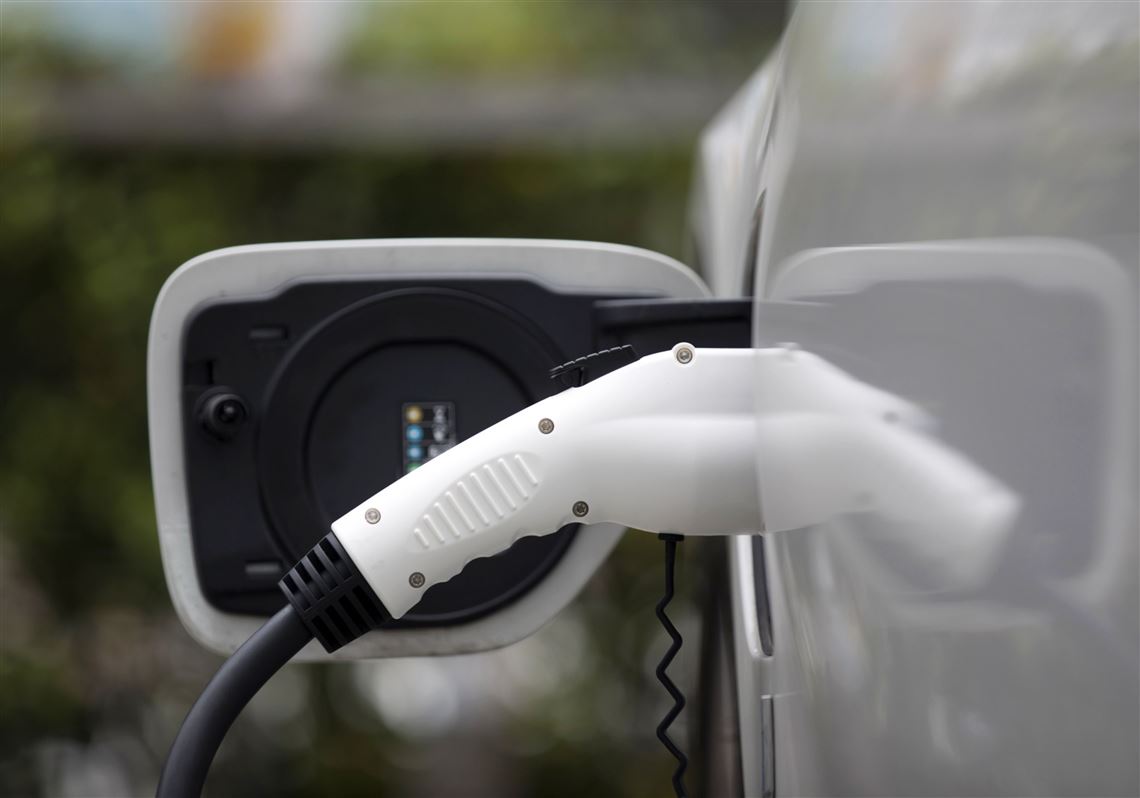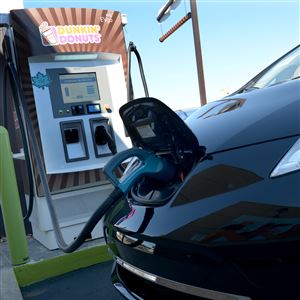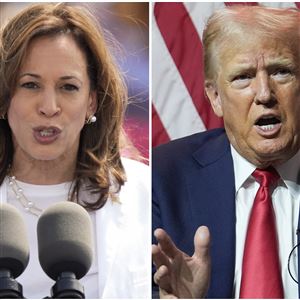Energy economists have observed that the American road to decarbonization is all carrots and no sticks.
Some European countries have had taxes on carbon pollution for years. And last year, the European Union began taxing all imports for their carbon footprints.
No such mechanism exists in the U.S., where instead of penalizing the undesirable, the government instead tries to incentivize the desired through tax incentives and rebates.
There’s an easy logic to this strategy: People like getting money back from the government.
According to a recent survey of Pennsylvanians designed by the University of Maryland’s Program For Public Consultation, the majority of both Democrats and Republicans said they approved of the federal government spending money on tax credits for home energy efficiency projects, electric vehicles, and clean energy installations. When the same people were asked if the government should make reducing greenhouse gasses, especially carbon dioxide, a high priority, only 20% of Republicans agreed, along with 57% of Democrats.
When asked, “How acceptable do you find the idea of the government providing tax credits to encourage businesses and individuals to increase the production and use of energy that produces less carbon emissions; improve their energy-efficiency,” about 44% of Republicans and 63% of Democrats were slightly or strongly in favor.
And when the questions got more specific, referencing individual tax incentives already on the books today — a tax credit up to 30% of the cost of solar panels, or up to $3,000 for building a new energy-efficient home — respondents were overwhelmingly supportive of keeping the measures at current levels or even increasing them.
For most of the questions, the younger age groups were more likely to want the increase.
The wide, bi-partisan support for these specific tax incentives was in spite of a majority of those surveyed — 72% of Republicans and 54% of Democrats — finding it a convincing argument to say: “If people or companies think that it is important to adopt these new green technologies, that’s fine. But, we should not all be expected to help them pay for it.”
The tax breaks for clean energy and energy efficiency got a big boost from the Inflation Reduction Act of 2022, the Biden administration’s signature piece of climate legislation that wrapped a lot of carrots into one big bundle.
Data from the Internal Revenue Service showed that 3.4 million households nationwide took advantage of such energy tax incentives in 2023.
In Pennsylvania, 158,550 households did so, comprising 3% of all income tax filers. They claimed credits totaling $267.9 million.
“The new data shows the Inflation Reduction Act is achieving its goal to lower both the upfront cost of clean energy and energy efficiency investments and monthly utility bills for American families,” the Department of Treasury concluded in its announcement of the new data earlier this month.
More energy-related money is coming to Pennsylvania consumers early next year, when the state is expected to finalize its rebate program for home appliances and electrification.
The federal government has allocated $259 million to the Keystone State for such rebates, which would be applied at the point of sale for things like electric stoves, clothes dryers, and other electrical equipment.
Republican support was lowest — albeit still more than 50% — for keeping or increasing electric vehicle tax incentives.
Electric vehicles tax credits are opposed by Donald Trump, who said he would cancel them if elected, and his running mate J.D. Vance, who introduced legislation in the Senate last year to repeal incentives for electric vehicles and instead give car buyers a credit for up to $7,500 if they buy gas-powered cars made in the U.S.
While electric vehicles still make up less than 1% of all cars registered in Pennsylvania, they are growing at a fast clip. There were 94,641 electric vehicles registered in Pennsylvania in the beginning of this year— 12% more than three months prior, according to data from the Pennsylvania Department of Transportation.
Among all survey takers, 78% favored keeping or increasing the $4,000 tax credit maximum for lower income consumers buying used electric vehicles. And 73% supported the new electric vehicle tax credit for up to $7,500. In fact, 30% of respondents would like to see that increase.
Anya Litvak: alitvak@post-gazette.com.
First Published: August 14, 2024, 9:00 a.m.
Updated: August 15, 2024, 1:52 p.m.



















